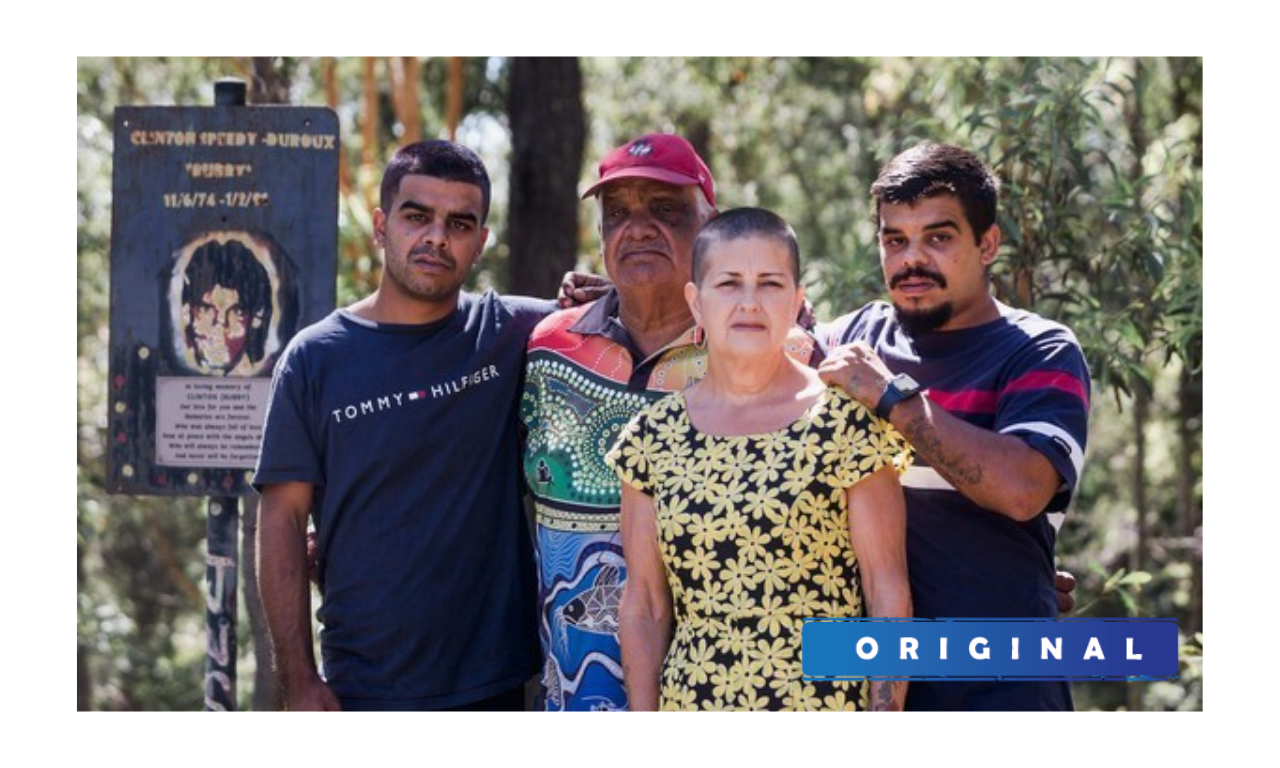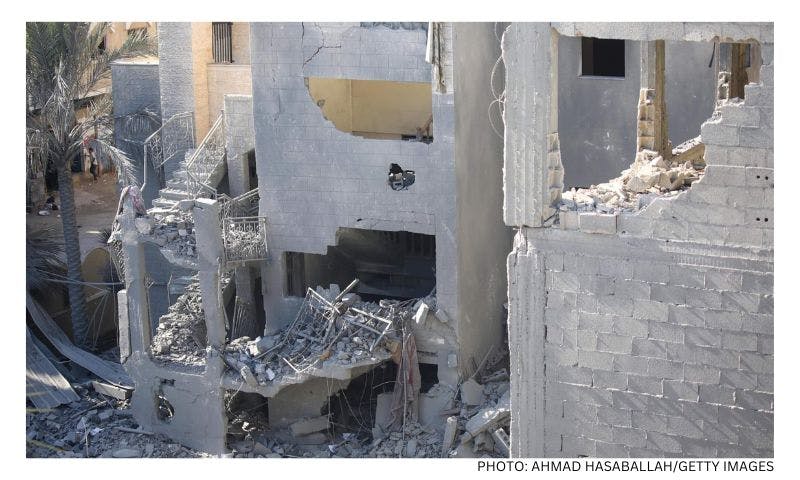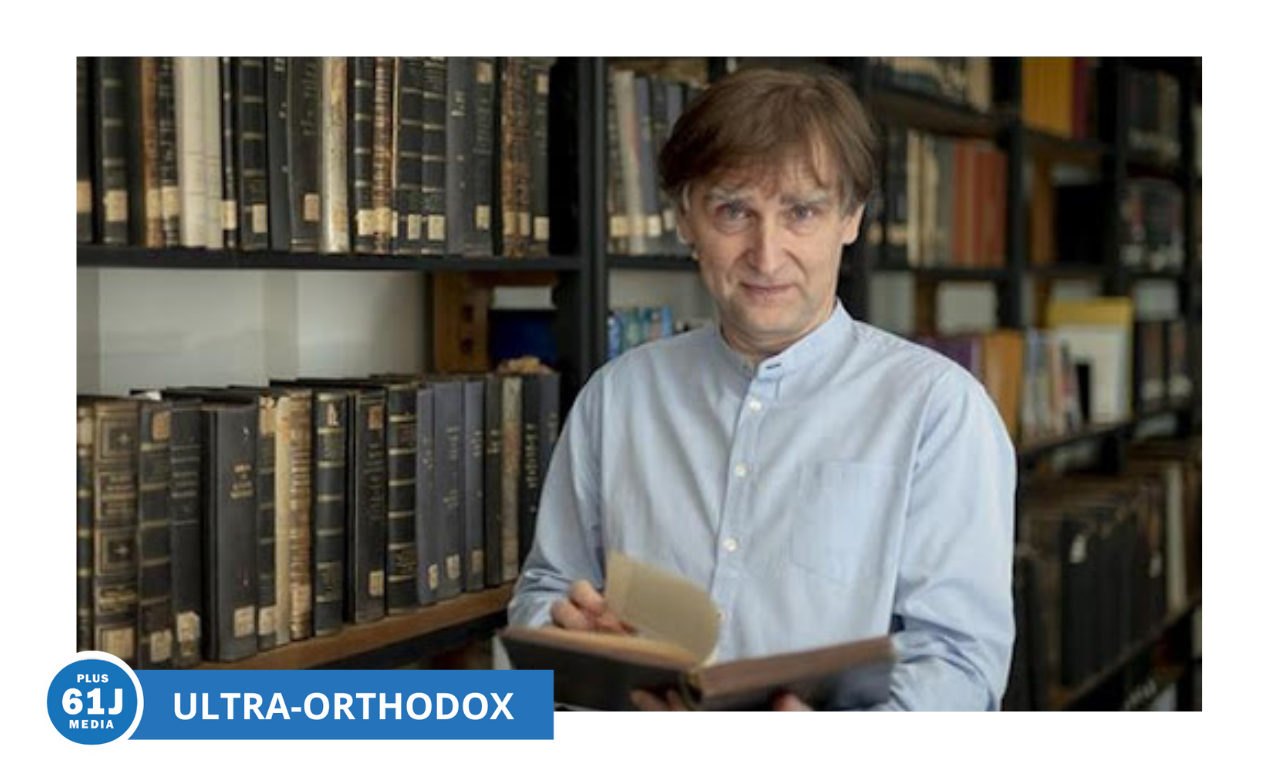Published: 27 August 2021
Last updated: 4 March 2024
Steve Meacham speaks to Dan Goldberg, producer of The Bowraville Murders, a new documentary that forensically dissects one of worst miscarriages of justice in Australian history
SIXTEEN-YEAR-OLD Clinton Speedy-Duroux had perfected some of Michael Jackson’s signature moves in 1991 and was out to impress his very attractive teenage girlfriend on the local dance floor.
He had recently moved to live with his father in Bowraville, in the NSW hinterland behind the surfing mecca of Nambucca Heads, though an “Aunty” had warned him not to go to.
There was a maniac on the loose, she told him. Someone had abducted - and presumably killed - two girls in the previous couple of months: Colleen Walker-Craig, also 16, and a mop-haired four-year-old, Evelyn Greenup.
With the insouciance of youth, “Bubby’’ (as he was known to his family) told his Aunty he could take care of himself.
Fatal last words.
When Clinton’s body was discovered in dense bushland three weeks later, devoured by animals, it was so decomposed the police described his corpse as “probably male”.
Had three white Australian children who lived just a few doors away from each other disappeared within three months of each other in 1990-91, the NSW Homicide squad would have been immediately on the case.
But Evelyn, Colleen and Clinton weren’t white.
They were Aboriginal, living on an “out of sight, out of mind” settlement - “the Bowra Mission” - on the outskirts of a town that then still required “blacks” to enter the Bowraville cinema by a separate side entrance and sit on the dirt to watch Star Wars.
This Sunday, August 29 - Covid-permitting - the families of Colleen, Evelyn and Clinton will watch the world premiere of an intense, gripping and revelatory documentary. The Bowraville Murders forensically dissects one of worst miscarriages of justice in Australian history.
“What these families have gone through is extraordinary,” says Dan Goldberg, from Mint Pictures.
Glasgow-born Goldberg, 51, is one of the documentary’s two Jewish producers – the other is four-time Emmy-award winning Stefan Moore, 77, from Jumping Dog productions, who now spends half his time in Bermagui on the NSW south coast, and describes himself as “a New York-born, non-practicing Jew who turned into an Aussie bush battler”.
(A third Jew was also involved, Goldberg points out: executive producer Adam Kay, “a fellow Scottish Jew and my business partner”.)
The documentary mounts a compelling case that the initial police investigation into the children’s deaths was worse than inept and incompetent, it was blatantly racist.
The film gets its national release on September 2 but will also be broadcast on SBS on September 26. The timing is cruel. “Stefan and I have been working together on this for five years…and now it comes out in a pandemic,” laments Goldberg, whose previous films include Food Fighter, about the founder of OzHarvest, Ronni Kahn, and Code of Silence, a documentary about sexual abuse within Melbourne’s ultra-Orthodox community which won the a Walkley Award for Best Documentary.
Moore has been working on the Bowraville Murders for a decade, ever since he produced an episode of ABC’s Four Corners program on the travesty of justice in 2011.
“Subsequently I stayed in touch with the families and others in the Bowraville community,” says Moore, whose four Emmy awards on social justice issues in the US date back to the 1970s. “And I turned up at some of their many protests.”
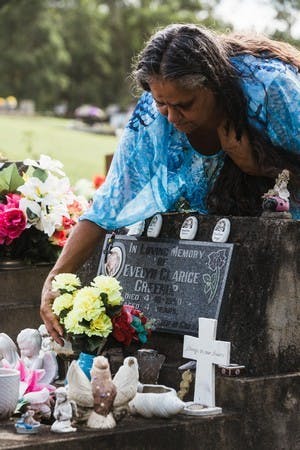
The documentary mounts a compelling case that the initial police investigation into the children’s deaths was worse than inept and incompetent, it was blatantly racist. The original detective assigned to the case wasn’t from the homicide squad but from child protection: clearly the police line was that the three children had been harmed by their own families.
Things changed when former NSW detective Gary Jubelin began reinvestigating the cases in 1997. At first, he was dismissed by the families as “just another white cop”, but he gradually won their trust - not least because he was appalled by the incompetence and racism of the original police effort.
One suspect stood out: a burly local white labourer who had been accepted by the Bowra Mission but had been one of the last people to see all three children alive.
This man faced two trials but was acquitted twice: in 1994 for Clinton’s murder and in 2006 for Evelyn’s murder. Colleen’s killer has escaped justice because her body has never been found.
“Double Jeopardy” is a cornerstone of the British, Australian and US legal systems, dating back over 800 years. It means someone who is acquitted of a crime cannot be prosecuted for the same offence again.
But in 2006, following the Evelyn murder trial, the NSW parliament opened the way for a person acquitted of a life-sentence offence to be retried if "fresh and compelling evidence" was uncovered.
Ten years later - following an extraordinary podcast by Dan Box, then a crime writer for The Australian - the NSW Attorney-General, Gabrielle Upton, announced she would make an application to the NSW Criminal Court of Appeal for the main suspect to face another trial for the murders of Colleen, Evelyn and Clinton.
One suspect stood out: a burly local white labourer who was one of the last people to see all three children alive. This man faced two trials but was acquitted twice.
Juries in the previous trials had not been allowed to hear the obvious connections between all three disappearances.
“That was the catalyst for me,” Moore says. “This was something the families had been fighting a quarter of a century for.”
Goldberg had the same reaction but saw the parallels with his own faith and ethnicity.
“What these families went through in terms of racism and injustice, Jews have gone through too. The courage and tenacity of this small community took them from a one-street mission in rural NSW to the highest court in the land, only to be rejected. But the documentary shows they took all the rejection on the chin, and still keep fighting for justice.”
Moore and Goldberg joined forces to make the film after each, unaware of the other, rang Box –to see if he would participate in their individual documentaries. When he told them of their mutual interest in making a film, they decided to work together.
Goldberg credits Moore (“He jokingly calls me his personal rabbi”) with insisting there would be no narration.
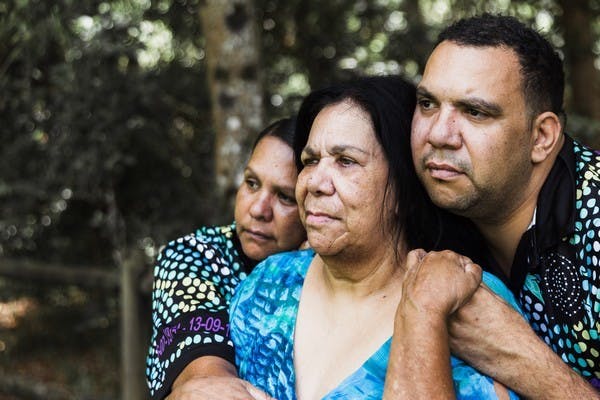
“Stefan said right from the beginning that this has to be told in the families’ authentic voices, and he was 100 per cent right,” he continues.
The film’s Aboriginal director, Allan Clarke, a Muruwari and Gomeroi man, was invited to join the project two and a half years ago. “There was a lot of understandable mistrust that this fragile story wouldn’t be told authentically. Allan won the trust of the families and allowed them to speak in their own voices,” Goldberg adds.
At the request of SBS (one of the film’s financial backers), which argued the film should not just be about Bowraville but about contemporary Australia, Australia’s best-known Aboriginal journalist Stan Grant came aboard.
“Stan helps the viewer understand that Bowraville wasn’t an isolated incident,” says Goldberg. “In the film Stan says, ‘for us, the killing never stops. Racism isn’t a big enough word to describe what happened here in Australia’.”
Stan [Grant] helps the viewer understand that Bowraville wasn’t an isolated incidenT.
Goldberg describes the filmmakers’ original approach to the families as ‘a devastating request to ask. “Please go through all the trauma you felt at the time and re-live it.
“But the families also asked us: ‘Please help our stories to be told. How come everyone in Australia knows the story of the three-year-old white boy in the Spiderman suit (William Tyrell) who disappeared (in 2014), but doesn’t know the names of Clinton, Colleen and Evelyn?’”
Of course, there’s a postscript. The families have still not had the days in court they wanted to face the chief suspect for all three deaths.
In September 2018, the NSW Court of Criminal Appeal ruled that the new evidence wasn’t sufficiently compelling to overrule the double jeopardy principle. The NSW government appealed, but in March 2019 the High Court of Australia decided there were no grounds for an appeal.

So this documentary is the closest the families of the victims have got (apart from Dan Box’s podcast) to voice their campaign to the nation.
In it, they describe the suspect’s links with all three youngsters. Clinton disappeared after going to the suspect’s caravan with his girlfriend for grog after the teenage dance.
Evelyn was asleep in her mother’s bed when the same suspect was in the house.
Thirty years later, Colleen’s body has never been discovered, and her family awaits it.
There has been a suppression order of the name of the suspect since 2016, but thanks to a magistrate who, in April this year, allowed his name to be published for the first time in five years, here it is.
After 30 years, Jay Hart remains the sole subject of interest though acquitted of the murders of Clinton and Evelyn. Then, as now, Hart is tall, overweight and, according to a former girlfriend in the documentary, violent when drunk.
“(Executive producer) Susan Lambert and (co-producer) Anna Cater spearheaded the legal fight, which we won,” Goldberg explains. “Of course, we reached out to him, his lawyers, his family and friends to talk. He is, after all, innocent in the eyes of the law.
“None would speak, so we relied on the archive, including Dan Box’s amazing interview with him.”
Hart has since changed his name; he declares his life and those lives around him “have been ruined” by false accusations.
The Bowraville Murders: SBS, Sunday Sept 26, 8:30pm
DETAILS for cinema screenings
The Bowraville Murders opens in selected cinemas around the country from September 2. DETAILS HERE for cinema screenings, including Q&As with director Allan Clarke.
For those in lockdown, join Stan Grant and Allan Clarke for a virtual screening and Q&A on Saturday, September 4 at 7.30pm.
Main photo: Marbuck Duroux (left), his grandfather Thomas Duroux, Leonie Duroux and Elijah Duroux (right) at the memorial to Clinton Speedy-Duroux. All photos by Kate Holmes unless otherwise credited
